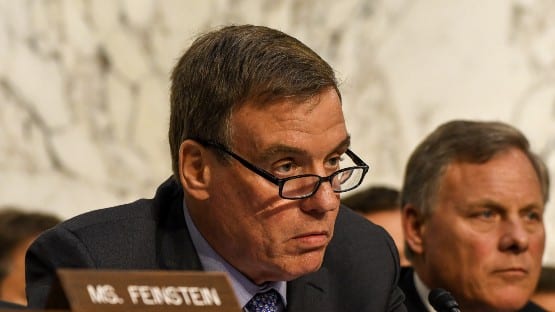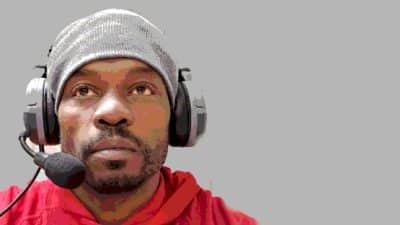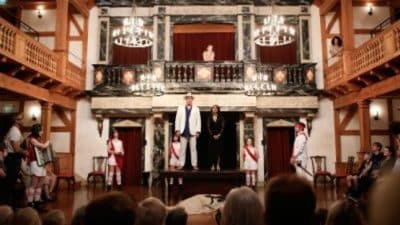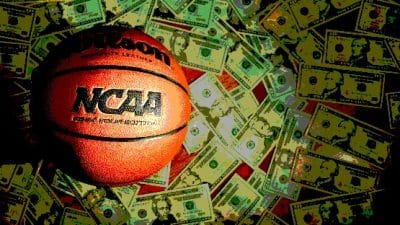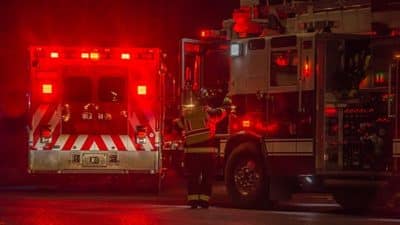The Top Story by Chris Graham
Brenda Gordon didn’t want to admit to herself that she believed in ghosts.
Being confronted with evidence of their existence will tend to make a believer out of anybody, of course.
“I moved into the house that my dad lived in, and he’s been dead since 1997, and the doorbell started ringing – and there would be no one there. And it started ringing on dates and times that made us really believe it was him trying to contact us,” said Gordon, who lives in Greenville in the southern part of Augusta County.
“We checked out the wiring and checked out everything in the area – there are no houses near us, we’re out in the county. It just made sense that it was him,” Gordon said.
“When you see something with your own eyes, it really is different than just hearing about it or hearing other people’s beliefs. When you see something yourself, and you can’t deny it, it really makes you a believer,” Gordon told The Augusta Free Press.
Gordon is a member of the Waynesboro Paranormal Research Group that investigates reports of ghost sightings and hauntings across the Shenandoah Valley and across the state of Virginia. River City resident Wayne Harrup founded the research group last summer while recuperating from a stroke that he jokes made him interested in ghosts “since I almost became one of them.”
“I’m not trying to make anybody a believer or a skeptic. What I’m trying to do is present what’s out there as it is – here’s what we have, and you can pick and choose whether you believe or you don’t believe,” Harrup told the AFP.
Ghost hunting is certainly getting a lot of play in popular culture these days – most notably through the Sci-Fi Channel hit “Ghost Hunters,” which is helping to bring the so-called science of the paranormal into the mainstream.
The “CSI” aspect of “Ghost Hunters” plays well on television – but does purchasing high-tech gadgets like electromagnetic-field detectors and electronic-voice-phenomenon meters and infrared cameras and using the term science to describe what they’re doing with them make the ghost hunters of the 21st century any different from the ghost hunters from other epochs?
“We are not wide-eyed believers. We are not fanatics. I will try to go beyond the pale to prove that there’s a natural explanation for something,” Harrup said.
“We do use scientific instrumentation – as much as we can afford it, anyway,” Harrup said. “We have EMF meters that detect electromagnetic fields. We have laser thermal detectors so we can detect cold spots.
“We approach it from a scientific basis,” Harrup said.
“Real science,” counters James Randi, a professional magician who founded the James Randi Educational Foundation, which investigates claims of the paranormal from a decidedly skeptical point of view, in 1996, “demands evidence.”
“All the rest of it is blind faith – and there are two kinds of faith,” Randi told the AFP. “There’s faith in things like how Sophia Loren will not be at my doorstep when I come home tonight – that’s based upon past experience and good common sense. Evidence-based thinking is a totally different thing altogether from faith-based thinking.
“There are all kinds of systems for looking into this sort of thing – but they’ve got to adopt some standards, to start with. You’ve got have standards. You’ve got to start making definitions and establish your baseline from which you worked. They haven’t done that – because they take anything that they come up with as being significant. They don’t have standards that they work with – and if they don’t, they don’t have a science. They like to believe that they’re active scientists because they have instruments with them,” Randi said.
“A lot of times what they’re doing is they’re going around, and they’re pretending to understand the science behind it, and they’re using scientific tools, but they’re misusing them,” said Benjamin Radford, the managing editor of The Skeptical Inquirer and the author of several books shedding light on how those who investigate the paranormal go about their business.
“It’s like if you give someone a ruler, and they’re using it as a pry bar, well, the ruler works as a ruler, but it doesn’t work for everything. And so in the same way, if they’re taking all this high-tech equipment around, it’s not that the equipment is necessarily faulty, but the science comes from the user, not from the equipment,” Radford told the AFP.
“A lot of times these ghost-hunter groups use a wide variety of impressive-looking equipment. For example, they’ll use EMF meters to read magnetic fields. And they’ll go to a particular part of a house or an allegedly haunted area, and they may get a high reading for some reason – and oftentimes this will, to them, be evidence of a ghost. This is pure pseudoscience – because there’s no proven link between the existence of a ghost and an electromagnetic field. It just simply doesn’t exist,” Radford said.
“What you find is a lot of times what these ghost hunters are doing is essentially looking for any sort of anomaly – anything that they find strange or weird by whatever criteria that they’re using that they can attribute as being a ghost or some sort of spirit or entity. For example, if a person holding this EMF meter can’t immediately figure out why there may be a higher reading in one area than another, then that can be deigned as evidence of a ghost – whereas it’s simply evidence of their ignorance of what is causing these phenomena. It could be it’s an equipment glitch, it could be that there are wires going through the walls that they aren’t aware of. All they’re really saying is – I don’t know what causes this, therefore it must be a ghost, or it’s likely to be a ghost,” Radford said.
It hasn’t been all that long since ghost hunters didn’t have to worry about being put under the microscope for their shoddy application of scientific instrumentation and techniques. Back when Troy Taylor, a nationally known ghost hunter and author, first started delving into the paranormal in the mid-1980s, investigators didn’t have the luxury of being able to rely on technology to prove that something was there.
“The reason for that is that back at the time when I first got involved in it, there wasn’t any kind of high-tech equipment that we could use,” Taylor said.
“Video cameras – not everybody had one, they weren’t that common. That’s been a big change in more recent years. As more people have gotten involved in the field in the mid and late ’90s, you started to see things like the use of electromagnetic-field detectors adapted for use in the field. That stuff was around – but was so specialized that nobody really had anything like that,” Taylor told the AFP.
Taylor said he still favors what worked for him in the good ol’ days.
“My own approach hasn’t been that different – mainly because I approach it more from a historical perspective as far as using history to track down real evidence of ghosts. And by history meaning not only just past events, but people who’ve lived at a location – for example, people at a location report a ghost, and go back and research the history of the location and find out that previous occupants with no connection to the current occupants were also seeing the same ghosts,” Taylor said.
Harrup, for his part, favors an approach to ghost hunting that is a mix of the scientific and the psychic.
“If you get really experienced in this field, you learn one thing really quickly – nothing is written in stone. Every investigation is different. You just have to learn how to adapt yourself and your methods to where you’re at,” Harrup said.
And for the record, the focus on science and obtaining proof of the existence of the paranormal isn’t what drew Harrup to the ghost-hunting business in the first place.
“We’re not about running around and taking pictures. If we get pictures, great. Believe me, I love the pictures and such. But that’s not the main thing. I don’t care if they come outside and do a can-can dance and sing ‘The Star-Spangled Banner’ on my EVP. If we help the people who are alive and living there as well as those who may have lived there before and died, then I’m happy,” Harrup said.
(Originally published 06-26-06)



